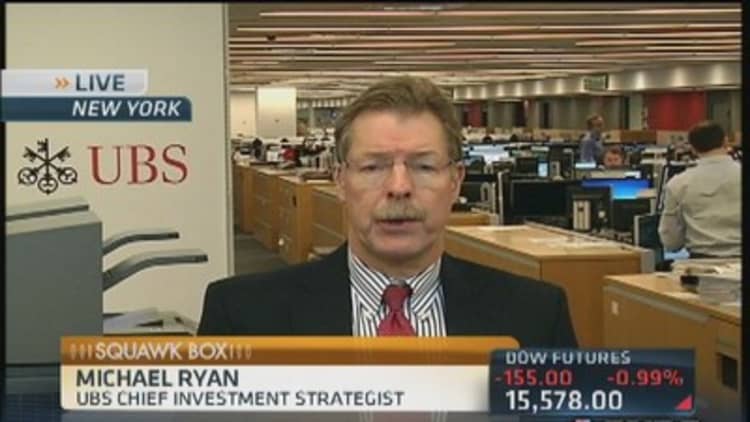U.S. stocks closed steeply under water on Friday, with Wall Street recording its worst month in more than a year and first monthly loss since August, as investors compiled a list of worries that now include emerging markets.
"The emerging market currency influence and volatility that goes into that probably plays out into the next couple of trading days," Jim Russell, senior equity strategist for U.S. Bank Wealth Management, said of the declines seen in the currencies of countries including Taiwan, Russia and Turkey that have come with signs China's economy is slowing.
Dependence on China as an export market and the tendency for the U.S. dollar to rise as the Federal Reserve tapers its asset purchases are both negative for emerging markets, while "the U.S. looks that much more stable and fundamentally superior to other global economies," said Russell.
"We do think the decline in the U.S. markets will be confined. We don't sense a wipe-out or dramatic decline is at hand here. Investors perhaps have gotten spoiled into thinking the market only goes in one direction," Russell added.
"When we haven't had any significant corrections, it doesn't take much," Randy Frederick, managing director of active trading and derivatives at Charles Schwab, said of the market's swoon.
After a 231-point decline, the Dow Jones Industrial Average dropped 149.76 points, or 0.9 percent, to 15,698.85, with Chevron leading blue-chip declines after reporting earnings that disappointed investors. The index was off 1.1 percent for the week and 5.3 percent in January.
Investors are starting to realize there is "selective value out there," said Russell of equities recouping a sizable portion of their early losses on Friday.
Major U.S. Indexes
Energy and consumer discretionary led declines and utilities and telecommunications were the best performers among the 10 major industry groups on the , which fell 11.6 points, or 0.7 percent, to 1,782.59, leaving it with a 0.4 percent weekly drop and down 3.6 percent for the month.
Wal-Mart Stores wavered after the discount retailer sliced fourth-quarter guidance and blamed factors including the federal government's cut in food stamps and the cold weather. Chipotle Mexican Grill rallied after the fast-growing burrito chain
Amazon.com declined after the online retailer reported profit and sales beneath estimates. Mattel dropped after a decline in Barbie sales dented its results.
After a brief bout in positive turf, the Nasdaq fell 19.25 points, or 0.5 percent, to 4,103.88, down 0.6 percent for the week and 1.7 percent for the year.

For every stock rising, nearly two fell on the New York Stock Exchange, where 952 million shares traded. Composite volume neared 4.1 billion.
Stocks remained in the red through a series of economic data on Friday, with Thomson Reuters/University of Michigan's final read on consumer sentiment showing a decline in January from the previous month, while the Chicago Purchasing Manager's Index for January fell 1.2 to 59.6, down for a third month in a row. Data also had personal income up 0.1 percent in December, matching estimates, and spending rising 0.4 percent versus a 0.5 percent estimate.
As the dollar climbed against the currencies of major U.S. trading partners; the yield on the 10-year Treasury note fell 5 basis points to 2.65 percent.
Gold futures for April delivery fell $2.60 to $1,239.80 an ounce, down 1.9 percent on the week after five weeks of gains. Crude-oil futures for March delivery fell 74 cents, or 0.8 percent, to $97.49 a barrel, up 0.9 percent for the week and down about 0.9 percent in January.
U.S. stocks jumped on Thursday, with the S&P 500 on track for weekly gains, as companies including Facebook reported better-than-expected quarterly results and data had the economy expanding in the fourth quarter as consumer spending gained traction.
—By CNBC's Kate Gibson
More From CNBC.com:


